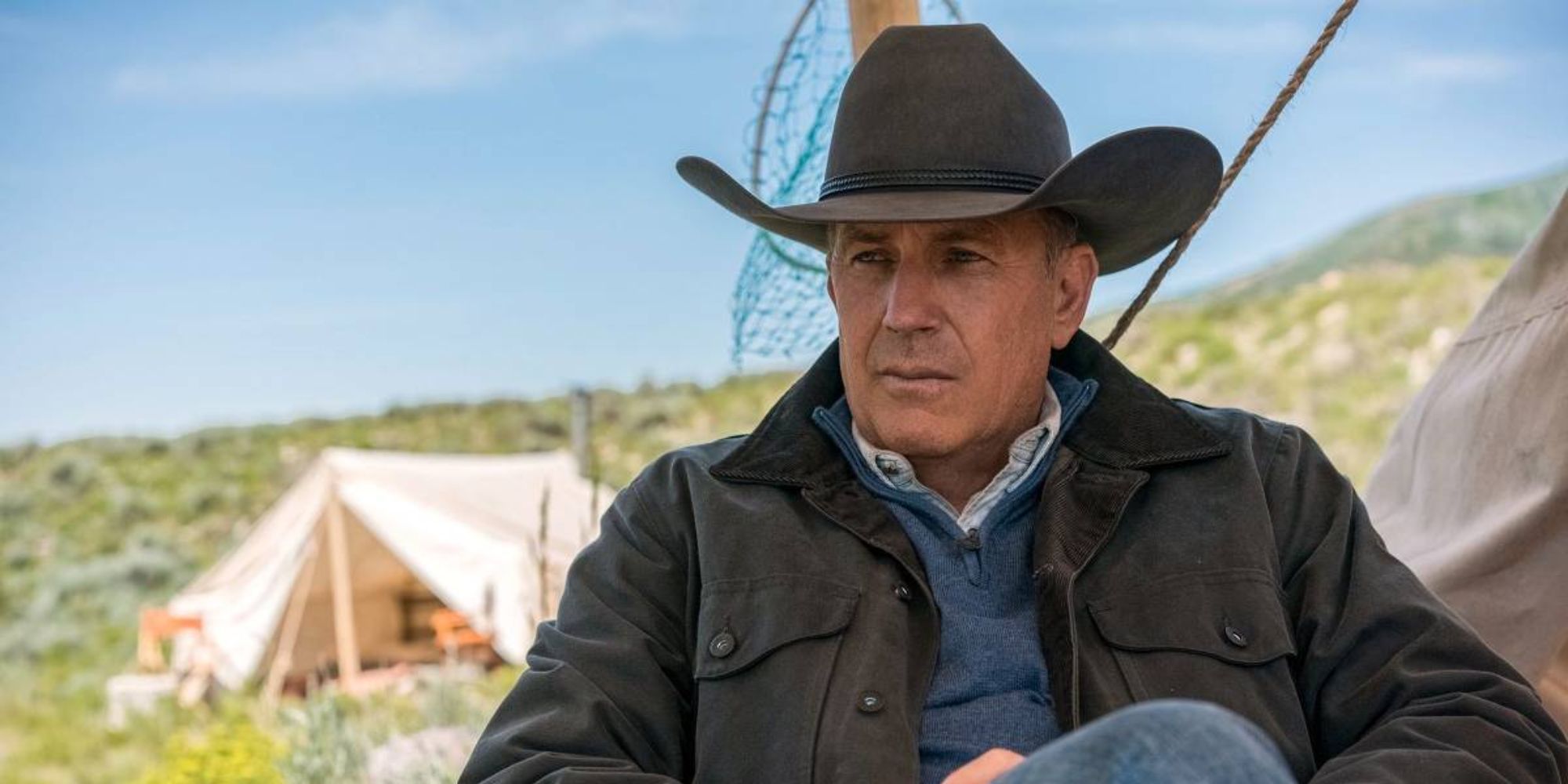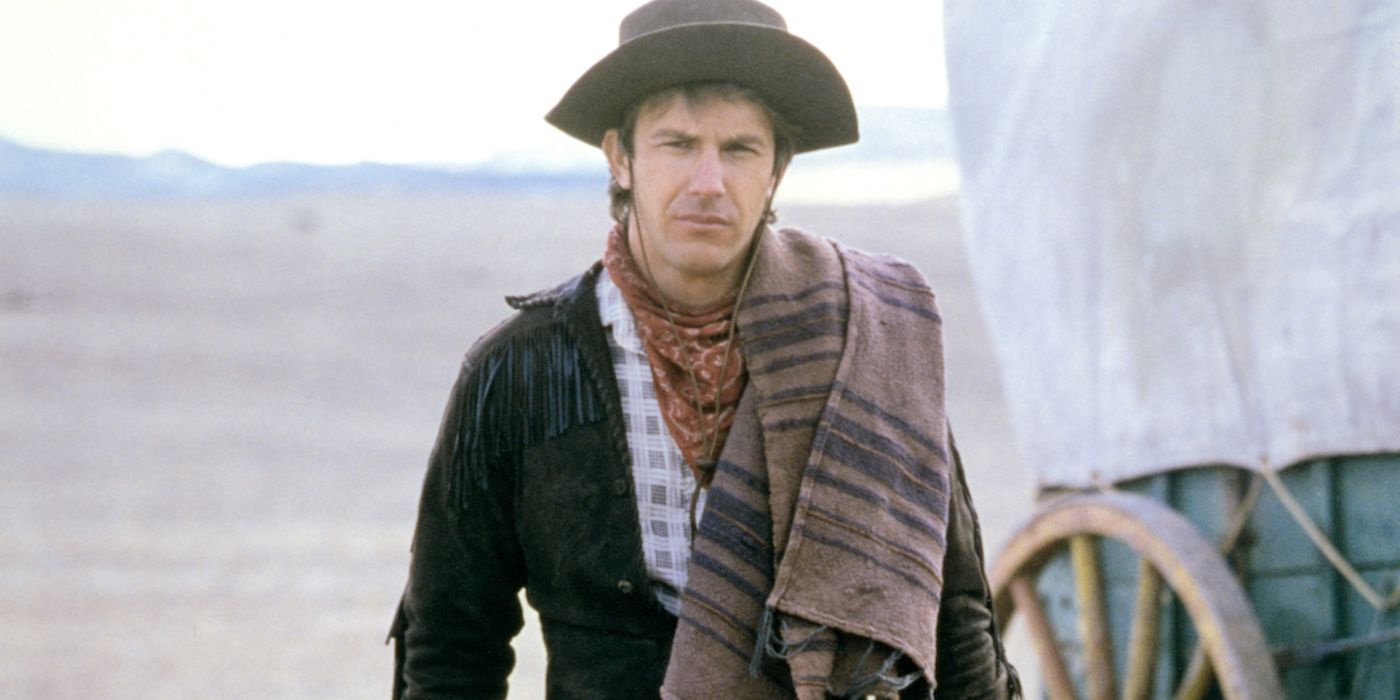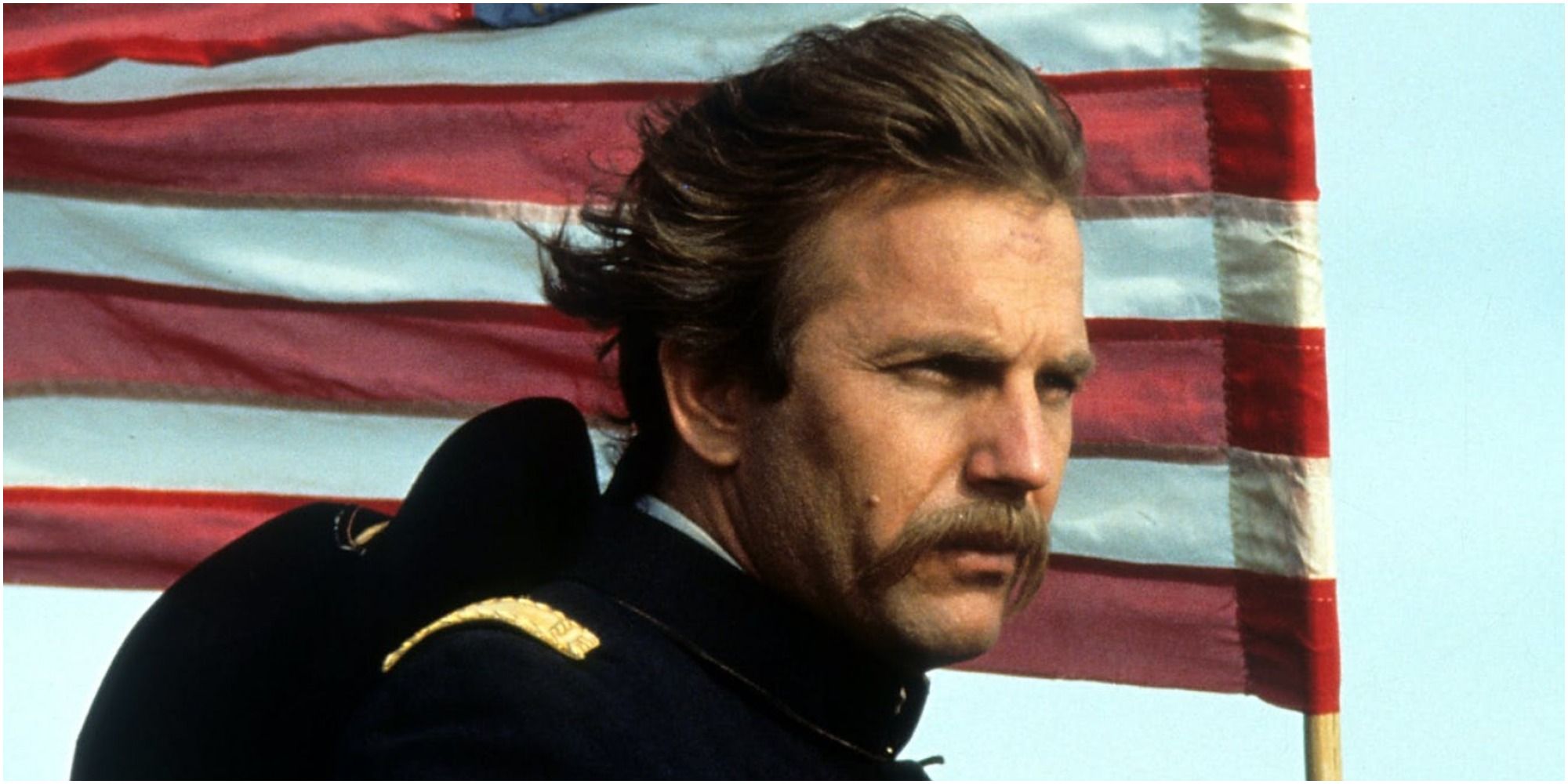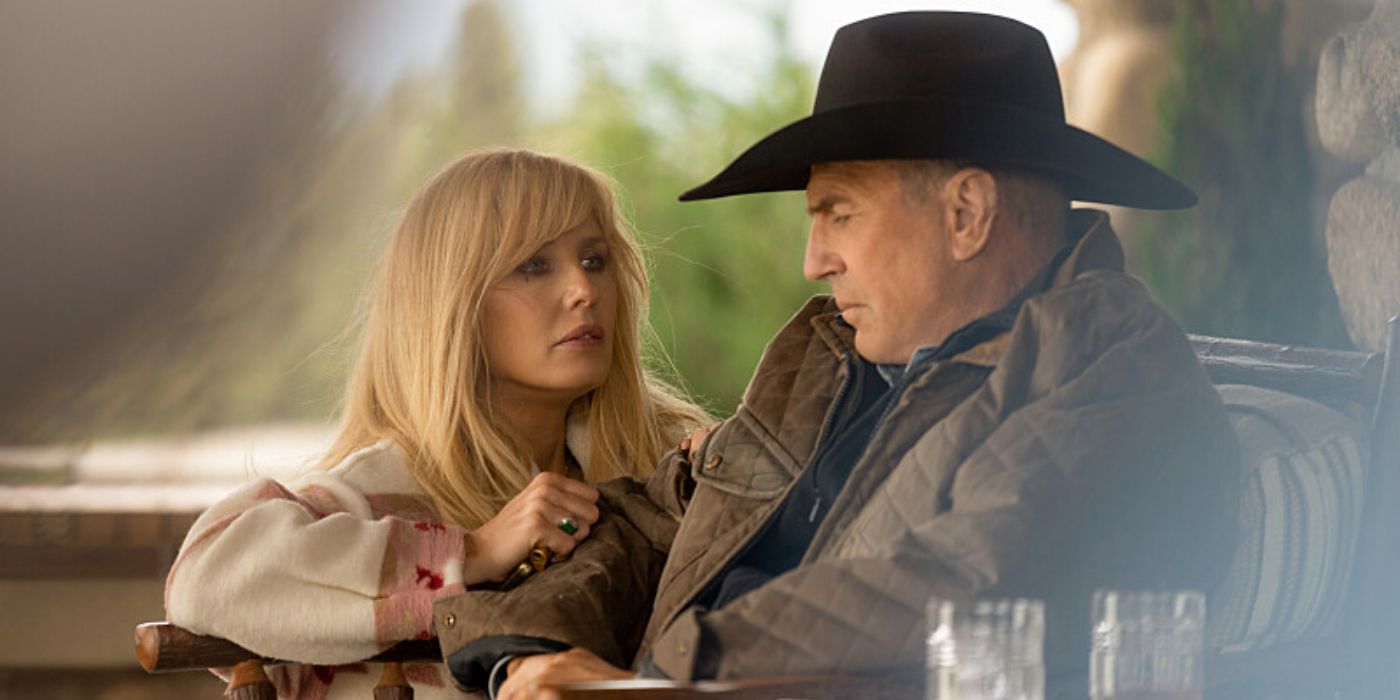With Kevin Costner's Yellowstone exit looming, the star may suddenly have a lot of free time on his hands. Only obligated to show up on set for 65 days (at most) of shooting each year, Kevin Costner is free to dedicate himself to his latest passion project, Horizon.
Marking his long-awaited return to directing following 2003’s solid but often forgotten Open Range, Horizon is set to be a modern-day epic in every sense of the word, weaving together 170 characters across a narrative spanning 15 years — all set against the backdrop of the American Frontier during the most pivotal part of its history. To account for its grandeur, Costner intends to release it in four separate chunks (each running just short of three hours) before re-editing it for television with a more digestible 42-minutes-per-episode structure. It would be a daunting prospect for even the most gifted of filmmakers, but Costner’s stellar track record in the Western genre (as both an actor and a director) gives hope that he might just pull it off.
Kevin Costner Has Always Excelled in the Western Genre
While Costner has always shown a willingness to experiment with his choice of roles, it’s clear that the lawless frontier of the Wild West holds a special place in his heart. His breakout performance came in Lawrence Kasdan’s high-octane western Silverado, and since then he has expanded his gun-slinging resume with various projects including Wyatt Earp, Hatfields & McCoys, and Let Him Go, all of which rank among his finest work. More recently, his role as the aging patriarch of the Dutton family in the neo-Western show Yellowstone has demonstrated that his talent for donning his favorite cattleman and riding through the open plains of the American heartlands has lost none of its charm.
However, it was 1990’s Dances with Wolves that cemented Kevin Costner’s place in the Western genre’s hall of fame. Its attempts at sentimentality may skew a tad mawkish, but the overwhelming about of passion he pours into every second makes for a rousing tribute to compassion and kindness that subverts the stereotypical depictions of Native Americans that are often associated with this genre (aided by a stunning level of technical proficiency that would make any first-time director jealous). It’s one of the few westerns to win the Academy Awards for Best Picture and Best Director, and has since been regarded as one of the most influential films of its era.
With such an esteemed catalog under his belt, it’s no surprise that Costner would set his sights on the American Frontier once again, this time as the basis for his most ambiguous undertaking. The news that his much-anticipated fourth directorial effort would see him returning to familiar ground was the subject of much praise when Horizon was announced back in January 2022, and the snippets of information we have since become privy to have only heightened the anticipation. “Horizon chronicles a multi-faceted, 15-year span of pre-and post-Civil War expansion and settlement of the American west," read the initial press release, revealing an epic scope that could be interpreted as the then 67-year-old maverick in charge of everything being keen to prove that his filmmaking prowess had not faded with time. While Costner has only provided vague elaborations in the months since (“It’s a really beautiful story”, he told Variety in June, a quote that 90% of directors trot out for their latest film), a combination of the basic premise and his well-documented expertise in the genre seems to be more than enough to get fans excited.
'Horizon' Will Be Released as Four Separate Movies
What is raising a few eyebrows, however, is the way Costner plans to distribute it. A few months after Horizon was announced, it was reported (and later confirmed) that Costner intends for the project to total four movies, released in intervals of three months. Each will have a distinctive feel but still weave seamlessly into the larger narrative, and each will also come with a runtime of around two hours and 45 minutes, bringing the final count to a whopping 11 hours. It’s a concept that unnerves and fascinates in equal measure, and is something that only an established director whose production company is financing the whole endeavor could do.
Costner is no stranger to films with a laissez-faire approach to storytelling – Dances with Wolves had already tested the limits of a major theatrical release with its three-hour runtime, and his widely panned follow-up The Postman also clocked in at a similar length despite the studio demanding otherwise – but the cinematic landscape has changed substantially since he last stepped behind a camera. Audiences may have flocked to see all 192 minutes of Avatar: The Way of Water, but that was also part of an established property that truly sells itself on the theatrical experience in a way few films do (and also didn’t come with the assumption that everyone would be back in a few months to do it all again). The advent of streaming and the rise of multiplexes may have quashed the long-held belief that films over two hours will struggle to make a profit, but the central factors that are increasingly separating the hits from the flops are lacking from Horizon.
A three-hour western would be a risky prospect at the best of times, but one that is only the first part of an 11-hour epic whose main selling point is an aging star who holds little box office allure to the primary moviegoing audience (appealing mostly to an older demographic who are visiting the cinema is ever decreasing numbers) pushes it to a whole other level of peril. Seemingly this is a concern the higher-ups at New Line and Warner Bros. are keenly aware of given that they plan to eventually recut it as a miniseries — an idea that feels like a natural evolution of Costner’s original pitch that Horizon would be an “event television movie." Seeing as the studio has the final say over how it is distributed, it wouldn’t be a surprise if its theatrical release is kept limited in an attempt to keep costs down.
Not that Costner seems particularly bothered. The days of television being the second-rate cousin to cinema are long gone, and while it took Costner a while before he transitioned from one medium to the other, his success with Hatfields & McCoys and Yellowstone that saw his career being revitalized with such vigor it was as if his time as one of Hollywood’s most bankable stars had never ended (culminating in him winning two Golden Globes for Best Actor) will likely have played a crucial role in his rationale. Like most actors of his generation, there’s no doubt a part of him that will always champion the theatrical experience, but ultimately his main focus is on getting Horizon made and then distributing it to the widest possible audience. If television is the way most people choose to watch it, then so be it… and given that there’s enough of it to watch The Way of Water three times and still have over an hour left, that will probably be a common experience.
Filming for the First Part of 'Horizon' Is Complete With More on the Way
Horizon has been filming since August of last year, but given its scope and the headache that will come from scheduling its armada of actors (alongside Costner, other names include Sienna Miller, Sam Worthington, Jamie Campbell Bower, Luke Wilson, Jena Malone, and Danny Huston, to name but a fraction), that process could be ongoing for eons. These factors – alongside its chosen genre and presence of an auteur filmmaker in director-producer-writer mode – will spark a few comparisons between Horizon and Michael Cimino’s infamous Heaven’s Gate, a $44 million celebration of hubris that ended up as one of the biggest critical and financial disasters in cinema (although retrospect opinion has turned considerably more positive).
It’s too early to tell if Costner will also become engulfed by the enormity of his project, but so far he appears to have avoided repeating the turbulent production cycle of Heaven’s Gate with production on the first film having already wrapped. The sheer ambition going into Horizon is guaranteed to make the end result an interesting one no matter what, but considering Costner’s credentials in the western genre, there’s good reason to believe that it’ll be worth the wait.




